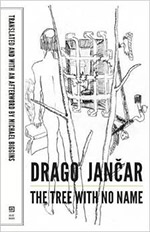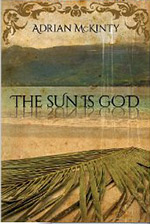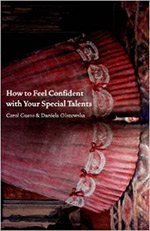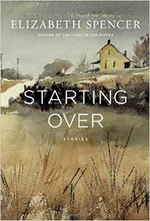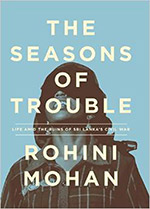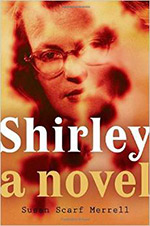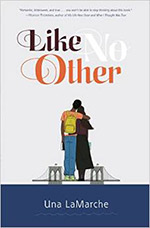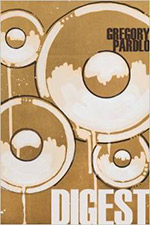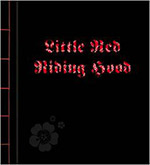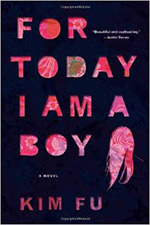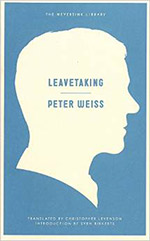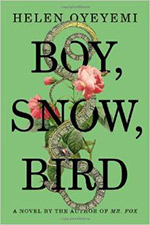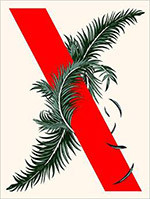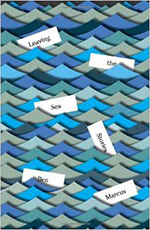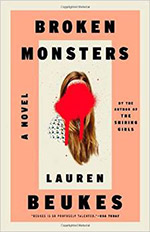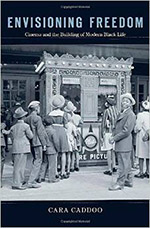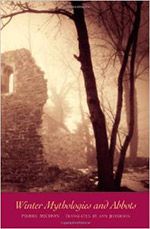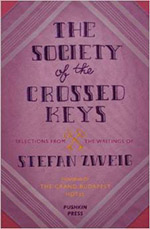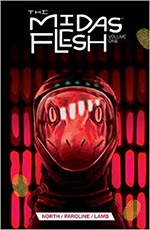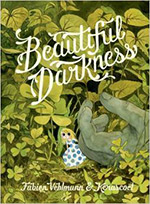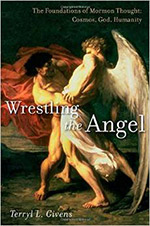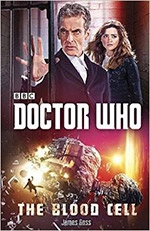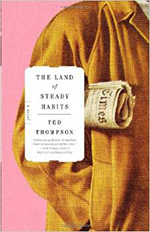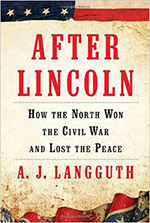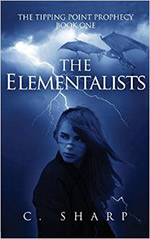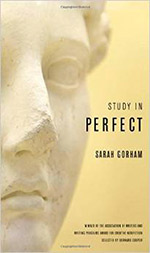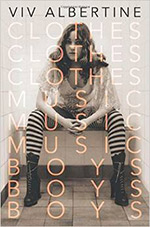
Slate is an Amazon affiliate and may receive a commission from purchases you make through our links.
The Overlooked Books of 2014
Slate Book Review critics suggest 27 great books you never heard about—but should’ve.

Illustration by Jen Wang
Slate’s Best Books of 2014 coverage:
Monday: Slate staff picks.
Tuesday: The best lines of 2014.
Wednesday: Overlooked books of 2014.
Thursday: The Slate Book Review Top 10.
Friday: Dan Kois’ favorite books of the year.
---
David Auerbach recommends The Tree With No Name, by Drago Jancar:
Jancar’s elegiac novel traces the modern history of Slovenia, from fascist and communist atrocities to the 1991 independence from Yugoslavia. Janez Lipnik, an aging Slovenian archivist, reads the plodding memoirs of a sex addict, only to discover that one of the writer’s first conquests might have been his childhood teacher. Obsessively questioning conventional wisdom, Lipnik starts to dissolve into the accounts he studies, until past and present are one. Jancar, who was imprisoned as a dissident under communism before becoming one of Slovenia’s greatest writers, insists that we not only remember our history, but feel it.
Torie Bosch recommends The Sun Is God, by Adrian McKinty:
This winter, if you’re tired of murder mysteries set in freezing Scandinavia, how about one set on a Pacific island? With The Sun Is God, Adrian McKinty—better known for crime novels set in Northern Ireland—offers a twisted, readable mystery. Based on a true story, it follows a retired military police officer who heads to colonial New Guinea in 1906. He’s dispatched to an isolated island to learn more about the death of a follower of a fanatical European group that subsists on only bananas, coconuts, and sunshine. It’ll both warm and chill you.
Stephen Burt recommends How to Feel Confident With Your Special Talents, by Carol Guess and Daniela Olszewska:
Presented as prose poems (which might be why you haven’t heard of it), this fizzy, sparkly, sometimes sarcastic collection is also a set of very funny, Twitter-worthy jokes about the way we live now, disguised as page after page of bizarre instructions for all-too-common situations: “How to Reset Your Password,” for example. (“Remember that computer generated passwords make you look fat.”) Some titles are wry poems in themselves: “How to Choose a Wedding Cake, or How to Practice Non-Attachment.” Others introduce sad, wise advice: “The real you should always be present at birthdays.” Guess and Olszewska’s step-by-step directions, invitations, triple meanings, and ironic affirmations also tell exasperated moderns how playing with language can help us face illness, fight sexism, or just get through a tough day: “Let’s go about whistleblowing while we work.”
Alexander Chee recommends Starting Over, by Elizabeth Spencer:
Elizabeth Spencer’s Starting Over, her newest collection of short stories, is her first in more than a decade, and is a quietly beautiful and impressive collection of short fiction that I have heard very little about, despite her having blurbs from Richard Ford, Alice Munro, and Eudora Welty (her career goes back that far) and some excellent reviews in the New York Times and here at Slate. It was lovely to discover these simple, straightforward, elegant stories—and the writer, whose work I did not know of, as she turns 93
Adrian Chen recommends The Seasons of Trouble, by Rohini Mohan:
The Seasons of Trouble, Indian journalist Rohini Mohan’s account of the end of the Sri Lankan civil war, is a remarkable feat of empathy. Mohan paints her characters with such emotional richness that it’s hard to believe the work is not a product of her imagination but of five years of painstaking reporting. Two of the book’s three main characters are women—one a former child soldier with the Tamil Tigers, the other a mother whose son is abducted by the Sri Lankan authorities under an Orwellian anti-terrorism law—setting the book apart from the overwhelmingly masculine domain of war reporting. There are familiar combat horrors, but the scene that stuck with me most was of the mother expertly preparing her son’s favorite meal to bring to him in the prison where he is being tortured, a tiny gesture toward order in a narrative defined by chaos.
A.N. Devers recommends Shirley, by Susan Scarf Merrell:
I’m not usually a fan of biographical novels (particularly about writers), but this one about Shirley Jackson, cult author of We Have Always Lived in the Castle and The Haunting of Hill House, and most famously, “The Lottery,” as told through the fictional lens of a houseguest-turned-helper, is a wonder. One of the gripping things about the book is how set in place it is in Bennington, Vermont, a town where the townies and the college have long gazed at each other skeptically—in Jackson’s work much of the roiling beneath the surface is because of this dynamic—and it is present in Shirley too, as Merrell hauntingly weaves in the disappearance of a missing young student named Paula Weldon to the novel.
Jen Doll recommends Like No Other, by Una LaMarche:
LaMarche’s second young adult novel, about a boy and a girl from very different worlds who fall into high-stakes love, came out in July and drew acclaims from numerous reviewers, but I still don’t think it’s gotten the attention it deserves. It’s an interracial love story—a much-needed addition in the YA world—featuring Jaxon, who is black, and Devorah, a Hasidic girl who isn't even allowed a phone. These two appealing, smart 16-year-olds meet in a Brooklyn hospital elevator when the electricity goes out due to a hurricane, and, yeah, sparks fly. What happens next is romantic and wonderful and heartbreaking.
Jonathan Farmer recommends Digest, by Gregory Pardlo:
Gregory Pardlo is a genuine New York poet, one whose associative poems crowd with sound and intellect, varied cultures, shared histories, with high and low and home—or at least the hope of it. But whereas for many of the city’s iconic poets, multiplicity means speed, in Pardlo’s Digest the words bear a great, slow weight, suggesting how much obligation there is in, as George Oppen described it, “being numerous.” In one poem, looking around at the various crowds in Prospect Park, he hungers for “the quickening backfill of belonging, the stranger- / facing, the neighbor-knowing confidence and ease / with the ripple that diminishes as it extends / over the vast potential of immovable thirst.” At its best, Digest registers our indebtedness in intricate pleasures that never let us pull free.
Cate Fricke recommends Little Red Riding Hood, by Sybille Schenker:
Your Secret Santa draw this year is a fairy tale buff and a lover of beautifully made books, but you’re fairly certain she already owns Neil Gaiman and Lorenzo Mattotti’s excellent Hansel and Gretel. You know what? You’re right. And with Gaiman’s popularity aiding sales, she’ll likely receive at least three more copies before New Year’s. Don’t fret, liebchen. Check out Sybille Schenker’s gorgeous edition of the Grimms’ Little Red Riding Hood, translated by Anthea Bell. Schenker, a German paper artist, uses die-cut paper illustrations and delicate layering to unfold the traditional märchen, pulling the reader through a familiar yet menacing landscape that surprises with each turn of the page.
Aileen Gallagher recommends For Today I Am a Boy, by Kim Fu:
Kim Fu’s novel contemplates identity via episodes in the life of Peter Huang, a Canadian son of Chinese immigrants who identifies as female. Peter’s transgender journey is more personal than political, and the scenes of family conflict, sibling bonding, and the confines of a small town help give the novel broad appeal. Members of the Huang family try to build lives different from the one they were born into—a father wants to shed his Eastern roots, a son his whole body. Fu’s debut novel, much like her main character, is subtle and controlled, with flashes of humor and warmth.
Jenny Hendrix recommends Leavetaking (Abschied von den Eltern), by Peter Weiss, translated by Christopher Levenson:
Melville House’s English-language reissue of this long-out-of-print novel, originally published in the 1960s, ought to have been a major event. Yet Weiss, author of the play Marat/Sade (and, according to W.G. Sebald, the “pornographer manqué” of German letters), remains among the most important postwar German authors no one’s read. Leavetaking was one of a pair of autobiographical works—the second is out of print—written years before Weiss’s three-volume novel and supposed masterpiece, The Aesthetics of Resistance, which has never appeared in English in full. In a single, dialogue-less paragraph, just over 100 pages long, it recreates the unnamed narrator’s coming of age as an artist in a German-Jewish family in the years before World War II. As a child, Weiss was a sleepwalker, and there’s an oneiric quality to this montage of text. It flows from one vivid impression to the next, now flying, now tumbling, now fumbling through the dark.
Miriam Krule recommends Boy, Snow, Bird, by Helen Oyeyemi:
If a book was reviewed on the cover of the New York Times Book Review, can it still be overlooked? What if it made their list of 100 notable books of the year? Helen Oyeyemi’s Boy, Snow, Bird also got a glowing review from me in Slate, but the 29-year-old’s fifth novel never really entered the cultural conversation in a way that it should have, and in a way one might expect from an expertly crafted narrative that tackles race and gender with a story that is somehow both uncomfortable and incredibly elegant. The fractured fairy tale, an updated retelling of the Snow White story, defies genre classification, but it’s nothing less than enchanting, and we should all be talking about it.
John Lingan recommends The Southern Reach Trilogy, by Jeff VanderMeer:
In the near future, a swath of the Florida coastline has mysteriously transformed into a pristine wilderness that no human visitor can survive. With each successive book, VanderMeer manages to expand our knowledge of so-called Area X—moving from a scientist’s diary in Volume 1, Annihilation, to a multitude of perspectives across decades in Volume 3, Acceptance. And yet somehow Area X grows only more inexplicable as the trilogy goes on. The result is a disorienting, fascinatingly creepy parable about the limits of human understanding and our unearned sense of dominance over the natural world.
Christian Lorentzen recommends Leaving the Sea, by Ben Marcus:
In the spring Ben Marcus came to London (where I live) and read his story “The Dark Arts” to a spellbound crowd at a Fitzrovia bar. It’s about a “romantic medical tourist getaway” in Germany gone awry, a nightmare of autoimmunity. A sentence: “From his wheezing torso they drew blood and marrow, his deep, private syrup—boiled it, then spoon-fed it back to him until he sizzled, until he just about glowed.” Nobody in England writes like Marcus; I don’t think anybody in English writes, or has ever written, quite like him. In Leaving the Sea he’s done the Hephaestus-like work of hammering the traditional American short story into a form worthy of (and sturdy enough for) the verbal and rhetorical virtuosity on display in his early fictions, The Age of Wire and String and Notable American Women.
Claire Lundberg recommends Broken Monsters, by Lauren Beukes:
Beukes’ latest novel is literary horror set in modern-day Detroit that combines the supernatural spookiness of Stephen King with the cat-and-mouse serial killer narrative of The Silence of the Lambs. The result is a hallucinatory referendum on this quintessential American city that’s constantly on the verge of extinction even as it’s being reborn. The body of a teenage boy is found, cut in half and attached to the hindquarters of a yearling deer in a strange and gruesome piece of serial killer art. Homicide detective and single mom Gabriella Versado hunts for the killer: Is he an outsider artist, a desperate man marginalized by the recession, or a new kind of demon for the modern age?
Phillip Maciak recommends Envisioning Freedom: Cinema and the Building of Modern Black Life, by Cara Caddoo:
According to Cara Caddoo’s lively, readable, richly detailed new history of African-American film cultures at the turn of the 20th century, the cinema was a central motor force for the formation of racial identity and community in the era of Jim Crow. Envisioning Freedom, which packs a tremendous amount of fascinating incident into a relatively short page count, introduces us to black church leaders in the Midwest who invested heavily in film technology as a tool for their ministries, embattled black theater owners in the segregated South, and the pioneers of African-American independent cinema at home and abroad. And Caddoo’s account of the mass protest movement that arose against D.W. Griffith’s racist epic The Birth of a Nation provides a moving case study in the age of Ferguson and the New Jim Crow.
Pasha Malla recommends Winter Mythologies and Abbots, by Pierre Michon:
Pierre Michon’s not necessarily been ignored in the U.S.—The New Yorker ran a profile—but I’m a little perplexed as to why his books haven't completely blown up over here. Translated beautifully from the French by Ann Jefferson, Winter Mythologies and Abbots compiles two pieces that, in spiraling, elliptical sentences that suggest W.G. Sebald at his most hypnotic, explore Michon’s common themes of history, faith, artifice, and art. The effect is like being guided through some dusty archives by a brilliant, whispering ghost—the most uniquely entrancing reading experience I can recall from any living author.
E.C. McCarthy recommends The Society of the Crossed Keys, by Stefan Zweig:
Is it subversive to suggest that Stefan Zweig was overlooked in 2014, the Year of Wes Anderson’s Big Movie? Not if you care that The Grand Budapest Hotel is not, in fact, based on a Zweig story. Wes Anderson’s personal selection of Zweig’s work, published by the remarkable Pushkin Press to coincide with the film’s release, offers a taste of Zweig’s compelling memoir, an extract from his novel Beware of Pity (oh, the title!), and a throat-grabber of a short story. Three impossibly good choices to begin your journey into Zweig’s careful, brilliant work.
Tammy Oler recommends The Midas Flesh, by Ryan North, Braden Lamb, and Shelli Paroline:
A delightful mix of mythology, science fiction, and physics, The Midas Flesh is an outer space story about two women and a talking dinosaur who try to use the body of King Midas to save the galaxy from a totalitarian regime. It’s no surprise that the creative team behind the Adventure Time comic book would dream up something this quirky, but what is surprising is how well they pull it off, especially in a limited series. Engaging characters, snappy dialogue, and a good balance of world-building and action bring to life an oddly heartfelt exploration on the implications of the Midas touch and the ethics of weapons of mass destruction.
Chris Randle recommends Beautiful Darkness, by Kerascoët and Fabien Vehlmann:
Beautiful Darkness made a little sensation in comics this year—the shivery, unnerving kind, as if sliding off a layer of skin. Rendered by the French illustration duo Kerascoët (a.k.a. Marie Pommepuy and Sébastien Cosset), the book’s kingdom of pixies finds itself imperiled, capricious, and then pitilessly nihilistic. The juxtaposition of huge-eyed fairy-tale archetypes and realist watercolors comes to feel like an existential wrongness. When her trusting, kindly nature gets abused once too often, the sprite Aurora exacts a toll for all those acts of self-sacrifice.
Michael Robbins recommends Wrestling the Angel: The Foundations of Mormon Thought: Cosmos, God, Humanity, by Terryl L. Givens:
This whole-hog study, the first of two volumes, just came out, and I haven’t finished it, but given its subject matter and publisher, its inclusion here seems proleptically justified. Even if, like me, you’re inclined to view Joseph Smith as a Blakean rather than Mosaic figure, you have to dig the audacious weirdness of our indigenous religion. Givens provides an expert Baedeker, placing Mormon theology in conversation with mainline Christian thought, freeing the faith from caricature without shying away from its more controversial facets. Smith emerges from Givens’ pages as a religious genius, although not a great writer, who would scarcely recognize the current Latter-day Saints Republican oligarchy.
Mac Rogers recommends Doctor Who: The Blood Cell, by James Goss:
Yes, it’s a tie-in novel to a TV show, basically the least prestigious form of fiction. And having long-running Brit sci-fi hero the Doctor invade a popular genre (in this case the prison film) is hardly a pioneering approach to Doctor Who storytelling. But Goss (who is set to novelize Douglas Adams’ legendary Who story “City of Death”) brings a fascinating new wrinkle to The Blood Cell, telling the story not from the perspective of the Doctor, a companion, or even an ordinary innocent (as in the famous “Blink”). Instead, we experience The Blood Cell through the eyes of the corrupted governor of the prison as he repeatedly fails to break his most troublesome inmate, the Doctor. By a clever use of point of view, Goss transforms what could have been boilerplate into the story of a mediocre man inspired to become a good one by the example of his adversary.
Gabriel Roth recommends The Land of Steady Habits, by Ted Thompson:
Ted Thompson’s debut is in an unfashionable mode: the suburban realism of Johns Updike and Cheever. So it’s strange to realize how well that style’s dominant mood of disappointment and resignation fits our own age of diminished expectations. It helps that Thompson has all the skills the form requires—acuity of observation, unostentatiously lovely prose, familiarity with despair—and that, substantively speaking, he’s interrogating rather than indulging in nostalgia. Welcome to suburban Connecticut, it’s been waiting for you.
Mark Joseph Stern recommends After Lincoln, by A.J. Langguth:
Langguth—a former New York Times reporter who died just 16 days before this, his final book, came out—was not a brilliant historian. He was, however, an amazingly lucid writer and a talented biographer, and his books on history are uniformly vivid, cogent, and compelling. After Lincoln charts the oft-ignored decades following the Civil War, as unprepared or incompetent presidents bungled the Reconstruction of the South. Langguth tells the story through biographical sketches, drawing upon a fantastic cast of heroes, villains, saints, and thieves. It’s a riveting read and a fitting swan song.
Seth Stevenson recommends The Elementalists, by Chris Sharp:
I’m no fantasy fiction enthusiast. When I heard my friend Chris Sharp was writing a YA novel about dragons, I figured I’d pat him on the back for his accomplishment but that his book wouldn’t be for me. I was wrong! The Elementalists plops an ancient dragon into contemporary Charlottesville, Virginia, linking fantasy elements to a cautionary modern tale about climate change and pollution. The realistic, adolescent dramas buffeting our clever protagonist, high school sophomore Chloe McClellan, are just as well-crafted as the passages on Chinese mythology and five-clawed, flying beasts. There is light romance here, and some benign teen drug use, but I’d feel confident giving this book to smart, mature 13-year-olds.
Katy Waldman recommends Study in Perfect, by Sarah Gorham:
Easily one of the best books I read this year was Sarah Gorham’s gorgeous, one-of-a-kind Study in Perfect, a loose collection of essays about (to lob some hopelessly broad nouns at my new obsession) art, tea, illness, alcoholism, the Cat in the Hat, family, and fear. Gorham’s writing is crystal-clear and drawn from a more poetic well than most. Her images (a toddler’s cherished dress becomes “her forest place without the scary journey”) made me gasp, as did her stunning aphorisms (“It takes terrific force to pry open the window in a selfish person’s house”). So many contemporary essay collections seem to want to be “of the moment,” wry and self-aware in a specific way. But Gorham has a calm and lovely sensibility that feels more timeless. It’s outrageous that these essays haven’t received more attention (though they did win the AWP Award for Creative Nonfiction). I know I am a W, near the bottom of a long list of recommendations, but if you’ve made it this far, please, please reward yourself by picking up a copy of Gorham’s almost-perfect book.
Carl Wilson recommends Clothes, Clothes, Clothes. Music, Music, Music. Boys, Boys, Boys., by Viv Albertine:
Highly praised when it appeared in Britain, this memoir by the former lead guitarist of the Slits may not draw as much notice in America, if the blank looks I’ve been getting when I mention the first all-female punk band are any indication. But even if you don’t know songs such as “Typical Girls” from their landmark 1979 album Cut, this book should captivate anyone with an interest in a woman’s struggle to be permitted to live as both an artist and a person. Albertine relates her life in nearly 100 tight, present-tense chapters, with the striking effect that the tone matures with the narrator. One practically sees the scruffy council-estate girl and boy-crazy teen of the early chapters (the title comes from what her mother used to say was “all you care about”) grow into the mouthy daredevil who hangs (and snogs) with the Clash and the Sex Pistols until she feels driven to take the guitar into her own hands. Finally—after band breakups, marriage, motherhood, domestic isolation, and cancer—we find her as a middle-aged divorcée hesitantly reclaiming her own voice, a woman we feel fully familiar with and rooting for. You have to be able to stomach the sights of blood, diarrhea, junkies, posh prigs, and scary-bad dates, but a memoir this headstrong and intimate proves more than worth the wincing. And the clothes are pretty fantastic.
---
See all the pieces in this month’s Slate Book Review.
Sign up for the Slate Book Review monthly newsletter.
